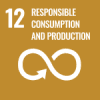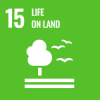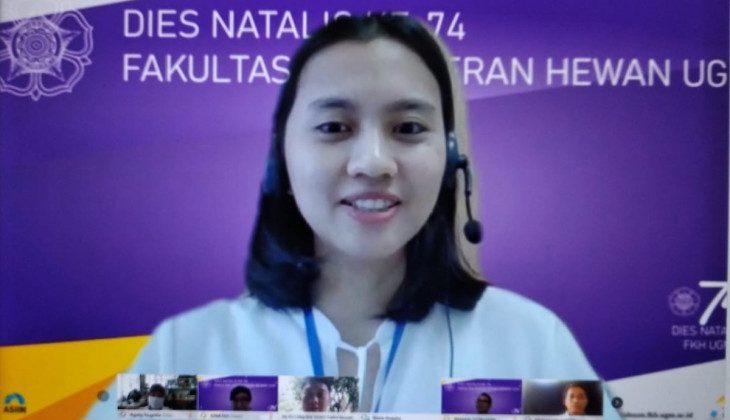Not only during the Covid-19 pandemic, the issue of food safety guarantees of animal origin was questioned. But long before that, implementation related to food safety assurance, especially from animals, was routinely carried out.
The program must meet the basic requirements in the food safety assurance system, especially products of animal origin. These are the necessary practices and conditions to ensure safe food products.
The basic requirements for safe food assurance that are widely known so far are HACCP or ISO 22000. While examples include Good Manufacturing Practices (GMP), Good Handling Practices (GHP), including Veterinary Control Numbers (NKV).
“In principle, before the Covid-19 pandemic, those who worked in the field of veterinary public health (Kesmavet) and related agencies had long been socializing about the Veterinary Control Number (NKV),” said Dr. drh. Widagdo Sri Nugroho, MP, from the Department of Public Health, FKH UGM, when delivering webinar material on Integrated Community Service for the broader community with the theme of Guaranteeing the Safety of Animal-Originated Products and Its Implications for the Economy of Communities Affected by the Pandemic, on Friday (14/9).
According to him, NKV is a certificate as legal written evidence that hygiene and sanitation requirements have been fulfilled to guarantee the safety of animal products in animal products business units. As a program for the basic requirements of a business unit, NKV pays attention to four essential aspects, namely veterinary practices, animal welfare, sanitation hygiene, and biosecurity.
Based on Minister of Agriculture Regulation No. 11 of 2020, there are 17 Animal Products business units that must obtain NKV. The animal product business units are Ruminant Slaughterhouse, Poultry Slaughterhouse, Pig Slaughter House, Layer Poultry Cultivation, Dairy Livestock Cultivation, Meat Processing Business, and Dairy Processing Unit.
Other business units are Egg Processing Business, Retail and Meat Kiosk, Refrigerated Warehouse, Dry Warehouse, Milk Storage Business, Consumption Collection, Packaging and Labeling Business, Honey Handling or Processing Business, Swallow Nest Washing Business, Non-Food Animal Product Processing Business, Processing Business Food Products of Animal Origin and Swallow Nest Processing Business.
“We know that this animal product has various kinds of consumption products for humans. It can be in fresh condition, processed and non-food products. In our management or interests related to the health of the veterinary community, these products, apart from being physically fit, are attractive for consumption or use; thus, safety aspect needs to be considered,” he said.
Delivering the topic “Veterinary Control Number (NKV) for the Safety and Health of Animal Origin Products amid the COVID-19 Pandemic”, Widagdo admitted that he received many questions before the webinar during the Covid-19 pandemic, are these products of animal origin contagious? According to him, at least from April 2020 data from WHO and FAO, no data or evidence supports the transmission of Covid-19 from food or packaging.
“This needs to be underlined. Although we hear that there are many positive slaughterhouses in Germany and Spain, the key to transmission is from the workers themselves or the people who work there. The activity is dense enough so that transmission still occurs. No information proves it is transmitted through food,” he explained.
Meanwhile, Prof. Dr. dr. Michael Haryadi Wibowo, M.P, from the Department of Microbiology, FKH UGM, as the second speaker, raised the topic “Coronavirus and Poultry Disease, Precautions, Prevention and Diagnosis”. He said that there are enveloped and not enveloped coronaviruses. This virus is enveloped from fat or with a fat-folded arrangement. This virus has the weakness of being easily damaged by fat solvents, such as soap and others.
“That is why there is always a recommendation to wash hands with soap, one of which is for viruses with envelopes made of fat. When washed with this fat belt, it will be damaged. When damaged, the spike or protrusion of the protein (spike protein), as the host’s seat (receptor), will be damaged. It makes this virus no longer functional, it can no longer infect because to be able to infect, it must bind,” he said.
The Dean of the UGM Faculty of Veterinary Medicine, Prof. Dr. dr. Siti Isrina Oktavia Salasia, said the broad community service webinar with the theme of guaranteeing the safety of products of animal origin and its implications for the community’s economy affected by the pandemic in commemoration of the 74th UGM Anniversary. The webinar was attended by more than 200 participants consisting of breeders, government agencies, students, and veterinary practitioners.
“We did not think that since six months ago, suddenly we experienced astonishing things, everything changed very quickly. The impact of the Covid pandemic is not only on campus. Even though the campus is quiet, we continue to carry out online activities, including this time holding community service in the context of caring for the Covid-19 pandemic,” he said.



